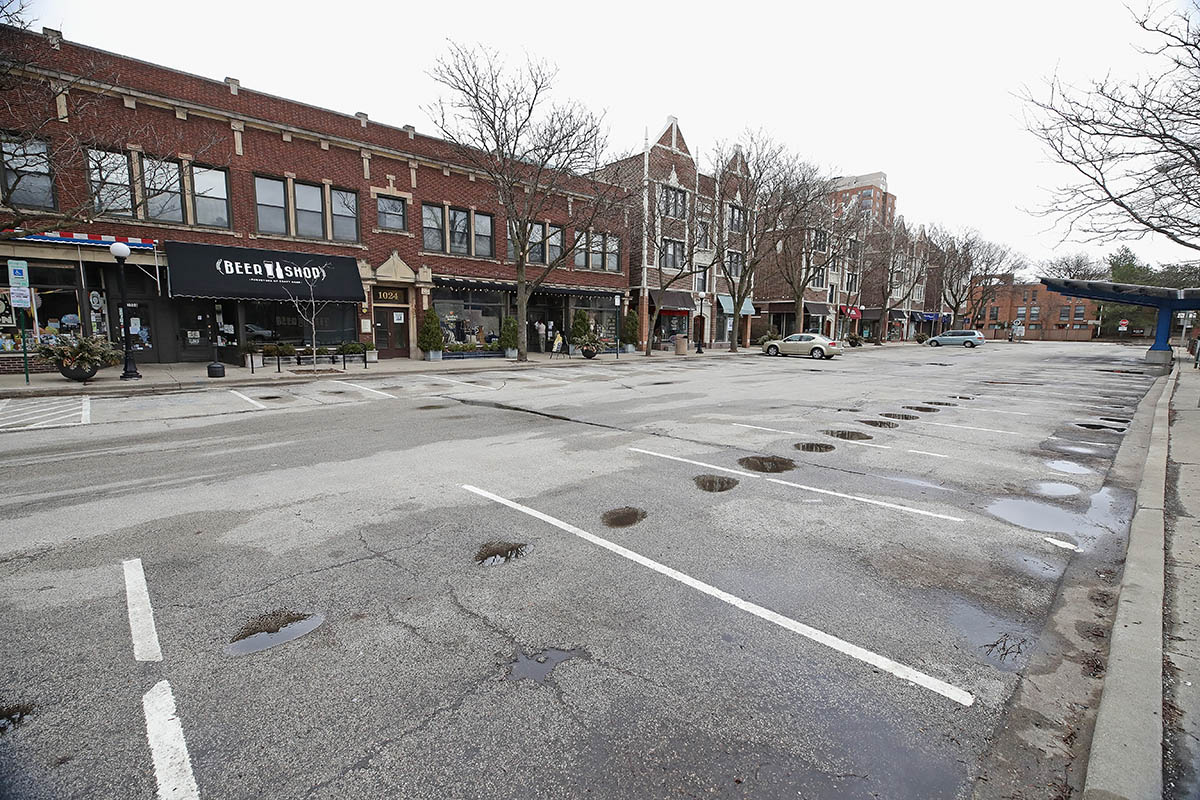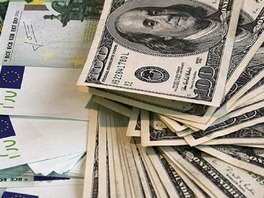The U.S. is the leader in the number of patients infected with COVID-19: as of May 4, more than a million cases have been confirmed in the country, with over 68,000 Americans dead. It is already evident that the consequences of the pandemic will be disastrous for the United States: more than 30 million Americans lost their jobs in the past six weeks. All of them are applying for unemployment benefits. Mikhail Pievsky, former Kyiv resident now living in the U.S., shared how the coronavirus has changed the life of his Chicago family.
Each day starts with looking up fresh (updated every day) coronavirus statistics in the U.S. The highest number of COVID-19 cases are registered in New York, New Jersey, Massachusetts, and my state of Illinois. These four states are considered stable "leaders". Alaska, at the same time, has the lowest number of people infected.
If you analyze it, about 40% of all these horrible statistics come from New York and New Jersey, the two states separated by the Hudson River. It's the most densely populated area, and that's why it's responsible for the highest number of infected. The data from these states actually reflects the COVID-19 spread in New York City and its suburbs. The vast majority of people commute to work from the suburbs. The same goes for part of Connecticut.
The coronavirus has affected rural areas less. American farmers don't travel much, working in fields near their own homes.
Illinois is also a predominantly agrarian state. To cross it from north to south, you have to drive 5-6 hours on the highway through solid cornfields. The coronavirus map of Illinois is mostly light. One place, however, has a big black spot, and it's the city of Chicago. It has the highest number of infected. The reason is all the same - overcrowding.
At the same time, Chicago is heterogeneous. Rich people live in the northern suburbs, where the distance between one-story houses is anywhere from 150 to 200 meters. As a result, there are very few infected there. In downtown and southern suburbs there is a large number of African Americans, Pakistanis, Hindus, and other national minorities who usually live poorer lives, and their homes are densely located. Traditionally, they have large families, which explains the high infection rate.
43 thousand people live in my district, which includes 1.5 square miles under one zip code. There are 660 infected people in the district now, which constitutes 1.5% of the population. Our house has 200 apartments, so it's likely that three of them have someone infected. The details, however, are confidential. That's enough for me to understand one thing: I have at least one common elevator, door handle, and railing with individuals infected.
 Mikhail and Natalia Pievsky's house
Mikhail and Natalia Pievsky's house
How do I feel? What does everyone in our house feel?
We can't help thinking about it, though different people have different attitudes to danger. My wife and I are 62 years old. We're at risk. But my mother-in-law, who is 90 years old, is at higher risk. First of all, we worry about her, and then about ourselves. We've barely left the apartment in the past two months.
We take out our garbage at night, and we don't use the public laundry on the floor.
We've been to the grocery store twice. We've been ordering online for a month. We wore masks, gloves, drove up to the store, where the order was taken out and put in our trunk. Money is transferred from account to account. We had no contact with salesmen. And now we decided to make an even safer order, having the food brought to the apartment door. We put the products in our "home quarantine" for a couple of days, and then we wash them.
In general, we don't leave the house: a large apartment building, the fourth floor, fresh air only on the balcony.
However, our family is not typical in Chicago. I see a lot of young people walking in the streets, some even without masks. There's no prohibition on walking the streets. But the police can stop people if they are on the beach and, until recently, in parks (parks have been open to the public since early May).
As a result of the pandemic, many people have lost their jobs, lost their business, or a significant part of it. The state aid is underway, and sometimes it takes interesting forms. For example, my wife Natasha worked in a small private clinic. She lost her job, so now she receives an allowance that exceeds her pre-crisis salary. This topic is being raised in the American media: allegedly, many people are reluctant to go back to work. This mainly applies to individuals with lower income - service sector, restaurant workers, etc.
I'm retired. We are not rich, but we have enough money for living. Natasha will receive an increased allowance until August, then unemployment benefits will be reduced three times. But the total period of unemployment benefit is 9 months.
 Mikhail and Natalia Pievsky
Mikhail and Natalia Pievsky
In addition, from the very beginning of the crisis, the government has given each person $1,200 in lump-sum assistance, and $500 for a child. Each unemployed person is provided with the allowance as usual, but they also began to receive additional payments of $600 per week until August 1.
Small businesses can also receive special loans. If a business owner spends it on other purposes, they will have to repay the loan after the crisis is over. But if they spend it on business support, such as rent payment, staff salaries, equipment repair, etc., the loan can be forgiven.
For the self-employed category of the population, there are also allowances. The state guarantees "financial holidays" to students who have taken loans for education. The government has also extended the tax payment period for the previous year by three months.
This is an unprecedented action and has never happened before in American history. Nobody knows what will happen next.
My neighbor and Talmud study mentor has two sons. Both are medics, working in the ambulance: one in Chicago, and the other one in New York. Both give the same prediction: America will be very lucky if it manages to cope with the virus and the crisis in two years. We should prepare for the worst.
That's our situation. In New York, again, it's worse. There, I think, everyone can already say that they have at least lost an acquaintance, if not a relative or a close friend as a result of the pandemic.
I have acquaintances in the Russian-speaking community in other cities, and when the quarantine started, I suggested holding an online conference to celebrate Shabbat together on Zoom. We put up a drink, a snack, made toasts, and celebrated. While toasts are different, one always repeats: for meeting after the quarantine. With everyone safe and well.
And we're ready to continue the quarantine as long as it takes. I don't see any reason to risk.






